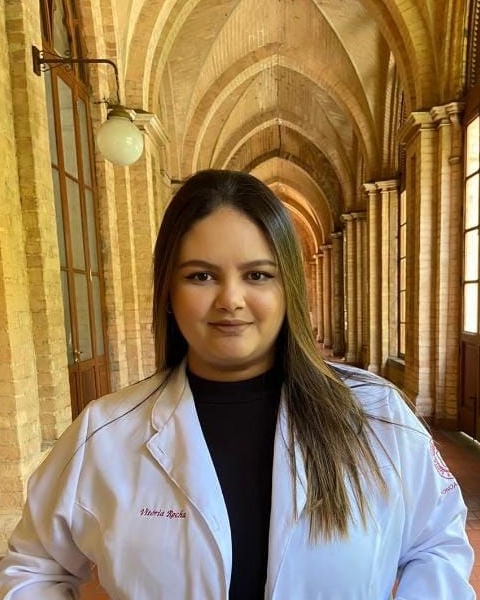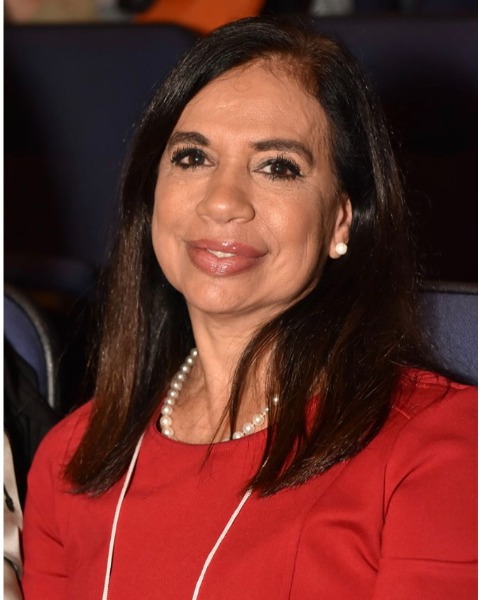Research (R)
PP1323 - Translation, Analysis, and Cross-Cultural Adaption into Brazilian Portuguese of the Auditory Processing Skills Questionnaire

Vitória Santana
Faculty of Medical Science of Santa Casa of São Paulo, Sao Paulo, Brazil
Disclosure(s): No financial or nonfinancial relationships to disclose.

Eliane Schochat, PhD (she/her/hers)
Full Professor
Universidade de São Paulo
Universidade de São Paulo, School of Medicine
São Paulo, Sao Paulo, BrazilDisclosure(s): No financial or nonfinancial relationships to disclose.

Camila M. Rabelo, PhD (she/her/hers)
Audiologist
University of Sao Paulo
University of Sao Paulo
Sao Paulo, BrazilDisclosure(s): No financial or nonfinancial relationships to disclose.

Caroline N. Rocha-Muniz, PhD (she/her/hers)
Assistant Professor
Faculty of Medical Sciences of Santa Casa of São PauloDisclosure(s): No financial or nonfinancial relationships to disclose.
Lead Presenter(s)
Presenter(s)
Summary:
Rationality and
Purpose:
The prevalence of Auditory Processing Disorders (APD) in children is estimated to range from 2 to 7% in both the United States and the United Kingdom. A 2005 report by the American Speech-Language-Hearing Association (ASHA) revealed that approximately 20% of the population is affected by auditory processing disorders.
The assessment of Auditory Processing involves a variety of methodologies, including behavioral and electrophysiological auditory tests, as well as the utilization of questionnaires and checklists. In a study conducted by Barry et al. (2015), the efficacy of the Evaluation of Children’s Listening and Processing Skills (ECLiPS) questionnaire was evaluated. This investigation compared the ECLiPS questionnaire with existing tools sensitive to the identification of auditory processing disorders. The study concluded that, in addition to demonstrating comparable sensitivity in identifying auditory difficulties, the ECLiPS questionnaire offered more comprehensive insights into cognitive and language challenges.
In the context of Brazil, there is a dearth of questionnaires characterized by methodological rigor in the Brazilian-Portuguese language designed to facilitate the screening and clinical delineation of APD. Therefore, the objective of this study is to translate, culturally adapt, and assess the internal consistency of the Brazilian Portuguese version of the Evaluation of Children’s Listening and Processing Skills (ECLiPS) questionnaire.
Design:
This study received approval from the Ethics Committee under process number 078915/201, and all participating individuals provided their consent by signing the Informed Consent Form. The methodological framework comprised six distinct stages, adhering to the guidelines outlined by the World Health Organization.
This cross-sectional study was conducted at two referral centers for childhood voiding dysfunction. The 38-item ECLiPS was translated into Brazilian Portuguese and culturally adapted according to Beaton, 2000. His-standard methodology consists of six phases: translation, synthesis, back-translation, audiologist expert committee, pre-test, and refinement of the questionnaire for the final version.
The pre-test involved 30 volunteer participants, aged 18 to 51, representing both genders and educational backgrounds ranging from completed high school to college, hailing from four Brazilian states. Each participant received the questionnaire along with a document to record their comments on the statement quality. Following the pre-test, the sixth stage involved further refinement of the questionnaire based on the received feedback. We also assessed the content validity of the final translated version.
Results:
Convergences and discrepancies between the original instrument in the English version and the Brazilian-Portuguese translation were compared. The scale was translated considering semantic, structural, idiomatic, and cultural aspects. During the pre-test, 170 comments were recorded by participants. All comments were organized and analyzed individually. The process of culturally adapting the ECLiPS to Brazilian Portuguese was validated: All agreement rates were > 0.8, and the overall content validity index of the instrument was 0.91 among the expertise committed.
Conclusion:
The ECLiPS was translated and culturally adapted to Brazilian Portuguese to support the clinical assessment of children referred for auditory processing disorder (APD).
Learning Objectives:
- Describe the methodological stages involved in translating, culturally adapting, and assessing the internal consistency of a questionnaire, specifically the Brazilian Portuguese version of ECLiPS.
- Recognize the role of participant feedback, documented during the pre-test phase, in refining the questionnaire, emphasizing the iterative nature of questionnaire development and adaptation.
